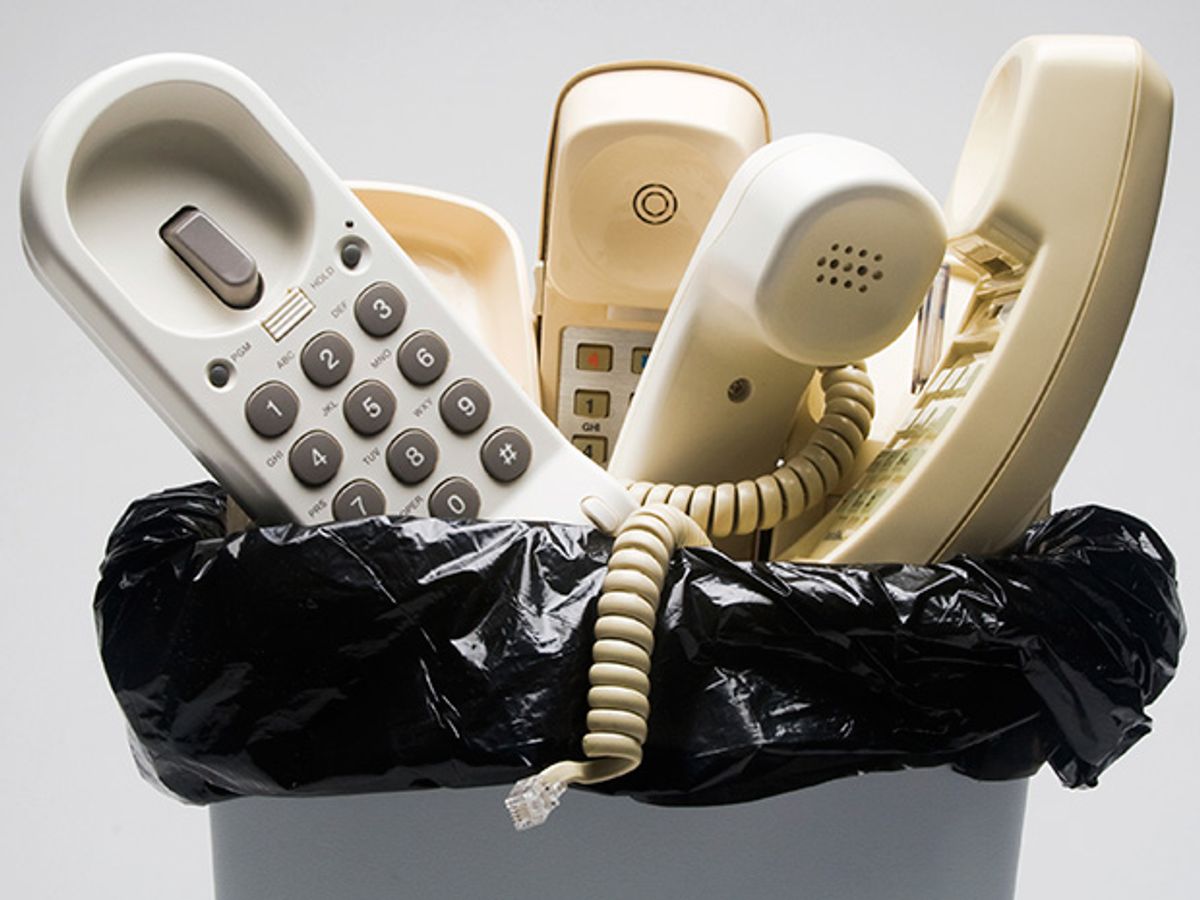The U.S. Federal Communications Commission set new ground rules for carriers seeking to replace their old copper telephone networks. Approved by a 3-2 vote at an open meeting yesterday, the rules require carriers to notify customers in advance and to seek FCC approval before reducing services.
Home landline service has dropped dramatically with the spread of mobile phones. In 2000, almost every U.S. household had a landline phone. Since then, many have dropped landline service, and nearly 50 million of the remaining lines have switched to Voice over IP, which sends voice calls in the user's broadband data stream rather than over traditional telephony’s copper wire pairs. FCC chairman Tom Wheeler and others have been pushing to shift telephone traffic to fiber optics and the Internet.
Critics have charged that phone companies are allowing their old copper networks to decay to force customers to shift to fiber service. But some 37 million households—many of them headed by elderly people—remain on legacy copper, commissioner Mignon Clyburn noted at the hearing. Other holdouts live in rural areas that lack cellular and broadband service. Some prefer copper connections because they are independent of local power lines, and offer better 911 emergency service.
The FCC ruling requires that carriers notify retail customers at least three months before shutting down a copper network, and provide six-months notice to interconnecting carriers using the old lines. (Clyburn complained that that's much less time than the FCC gave before shutting down analog broadcast television, but voted for the measure anyway.) Carriers also must seek FCC approval if the telephone changeover would "discontinue, reduce or impair" service. Details remain to be worked out, but key issues are voice quality and support for 911 emergency calls, alarms, and medical monitors, sw well as assistive technology for the disabled.
Two dissenting commissioners complained that the new rules would extend regulations and slow adoption of new technology. But Wheeler said that changing technology should not be "an opportunity to erase the historical reality of the responsibility of network [operators] to the users of those services."
In a separate vote, all five commissioners agreed to require carriers to offer customers backup power supplies that maintain their phone service during prolonged power outages. Traditional copper phone lines are independent of local power, and have a reputation of being more reliable than power grids. But that hasn't stopped landline users from buying cordless phones that go down with the grid.
Jeff Hecht writes about lasers, optics, fiber optics, electronics, and communications. Trained in engineering and a life senior member of IEEE, he enjoys figuring out how laser, optical, and electronic systems work and explaining their applications and challenges. At the moment, he’s exploring the challenges of integrating lidars, cameras, and other sensing systems with artificial intelligence in self-driving cars. He has chronicled the histories of laser weapons and fiber-optic communications and written tutorial books on lasers and fiber optics.



